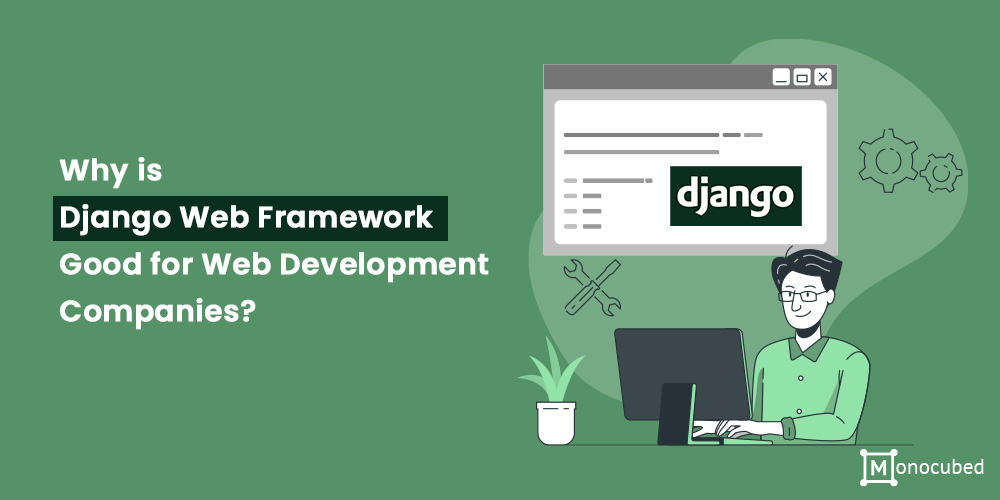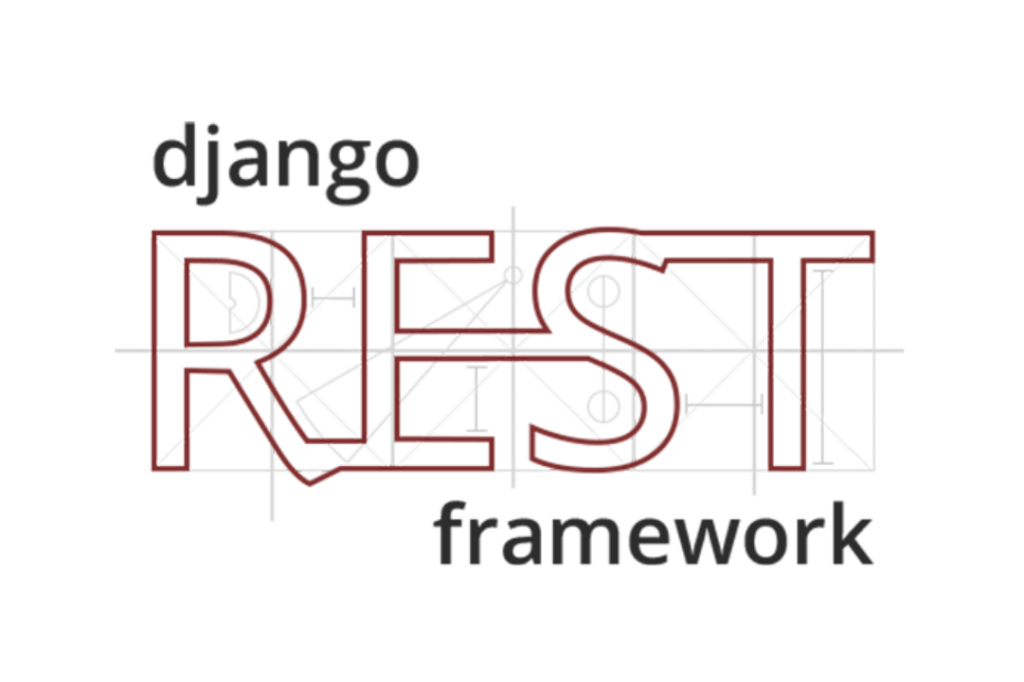Before starting a web project, it is important to choose the right language and tools. Web libraries and frameworks play a massive role in defining your web application or websites’ scalability, performance, speed, and user experiences.
While frontend frameworks take care of the look and feel of your web application, languages like Python govern the backend development. Python is simple to use and provides extensive libraries to increase developer’s productivity.
Django web framework is the most popular Python-based framework, according to the 2020 JetBrains Developer’s Survey which surveyed more than 19,000 web developers.
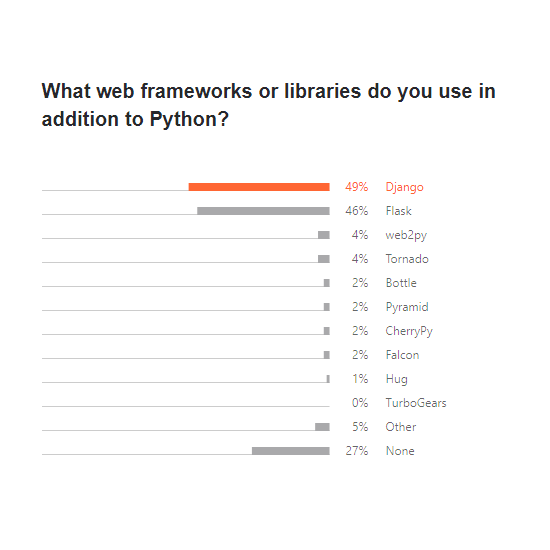
Before we start any project, we explain all the technologies we use, including Django, to our clients. In fact, our Python web development services include technology consulting. We sat with our technology consultants and found out why Django framework is prominent in our project tech stacks.
So here is a list of top 8 reasons why Django is the right choice for your company’s web project.
Table of Content
Django – A Glance
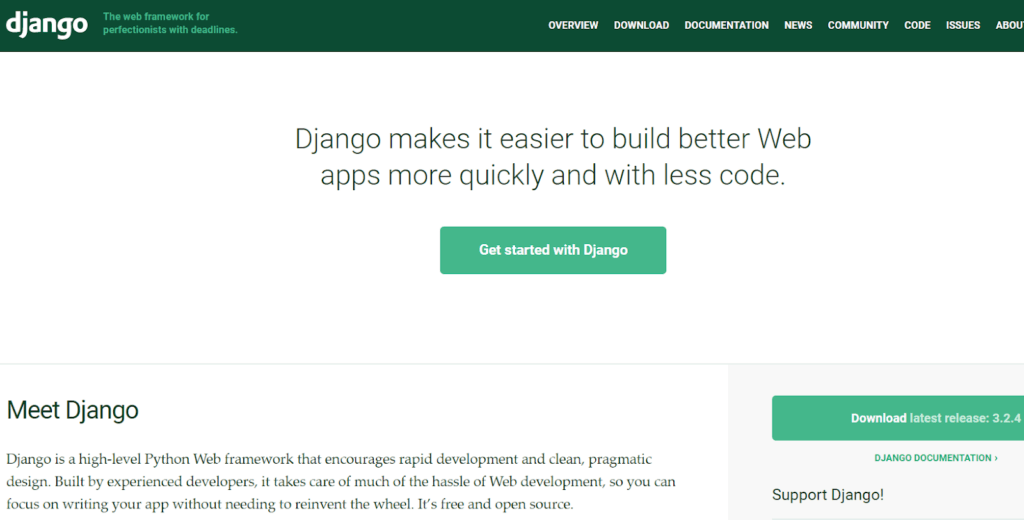
source: https://www.djangoproject.com/
Django is a Python-based free and open-source web application framework for the backend development of web applications and websites.
It follows the Model View Template (MVT) architectural pattern. It separates the code into three distinct parts – Model, View and Templates. The developers just have to code what should be displayed to the user and Django will take care of all the background details.
Maintained by the Django Software Foundation, the primary goal of Django is to ease the creation of complex, database-driven websites.
The Python web framework Django emphasizes the following core areas:
- Reusability
- Pluggability of components
- Less code
- Low coupling
- Rapid development
It has a wide array of usage, spreading from eCommerce applications to the Fintech industry, and can be used for machine learning implementations, and mobile and game development.
Why Is Django Right for You?
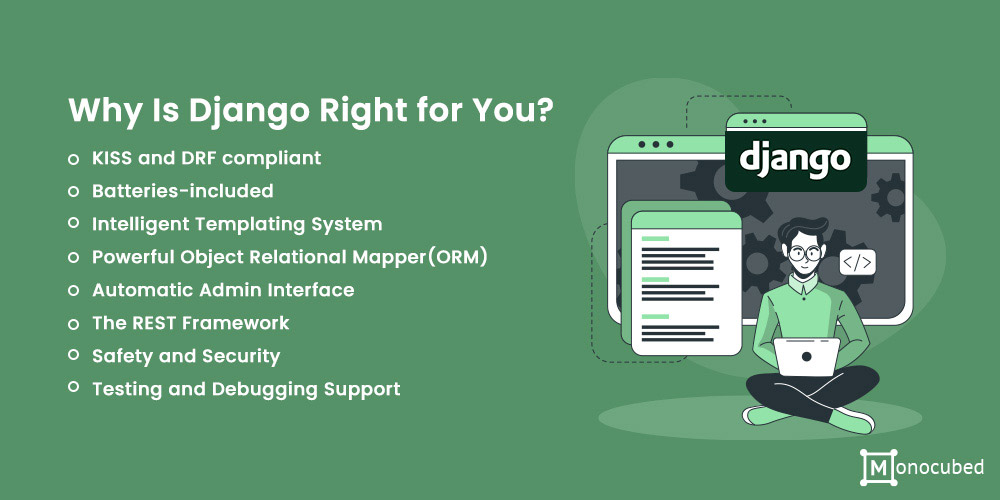
Django is one of the top choices for many business giants. It is an all-in-one framework that suits any type of web development project be it a startup-level MVP or a complex enterprise-level app. With many advantages such as MVT architecture, automatic admin panel and powerful database support, its popularity is not surprising.
Which companies are using Django currently?
Be it social media web apps like Instagram, government websites like Nasa, or media sharing platforms like Youtube and Spotify, the list of companies using Django goes on.
Companies prefer this framework because Django apps are cross-platform, scalable, database-driven and highly secure.
Along with companies, there are many freelancers and experienced developers who work with Django regularly. The Django community is very vast and helpful. Django has 59.4 K stars on GitHub with 2090+ contributors.
Some advantages of using Django are –
- KISS and DRF compliant
- Batteries-included
- Intelligent Templating System
- Powerful Object Relational Mapper(ORM)
- Automatic Admin Interface
- REST framework
- Safety and Security
- Testing and Debugging Support
Looking to Develop an Advanced Web Solution?
Get a cost-effective, secure, integrable Django solution that is customized according to your needs. Talk to our Django expert for free.
Let’s discuss each of the above-mentioned advantages in detail, to understand better how Django is a right fit for your business.
KISS and DRF compliant
The ‘Don’t Repeat Yourself’ and ‘Keep It Short and Simple’ philosophy is closely followed by the Django web framework. The simplicity and reusability of elements are the main cornerstones of Python, and Django effortlessly carries it onward.
Templates, automatic data relations, admin dashboard, and other conventions, ensure that your project spends minimum time in the coding phase. Thus using Django will help you when you require quick prototyping and a short time-to-market.Batteries-included
Django framework is batteries-included, meaning it comes inbuilt with a lot of tools and utilities that add to the building of complex web applications.
It incorporates an admin panel, user interface, testing web browsers, code editing tools, indentation, productive user interface and more.
It includes popular libraries and tools such as Django REST, which helps developers in building web APIs (application programming interfaces). Django CMS, which is designed to manage website content, is also an example of a widely used web library.Intelligent Templating System
Django template is a text document or a Python string that later gets converted to markup Python code using the Django template language (DTL). The template engine is designed to be familiar and useful, striking a balance between feature-richness and ease of use.
It’s similar to HTML, and thus comfortable and easy to learn. Django templates are highly flexible allowing developers to augment the template language as per their requirements.
The template engine allows your company to use familiar technology and customize it to your design.
Powerful ORM
The Django ORM provides a bridge between the relational database tables and models, keeping the hassle of maintaining and updating large databases.
In addition, it supports all the major relational databases such as MySQL and PostgreSQL, if your organization is reluctant to shift to Django’s in-built ORM.
Django applications are perfect when you are developing data-driven content management systems, as they can handle large datasets.
It also comes equipped with data-plotting and analyzing tools, which can help you analyze your user data and strategize your marketing.
Automatic Admin Interface
Django’s automatic admin interface is one of the most powerful admin panel generation tools for frameworks. It acts as an internal management tool for your business and is useful for managing content on your site.
It reads metadata from your models to create a powerful and production-ready interface for admins. You can simply customize the interface to your requirements.
REST Framework
Django REST Framework(DRF) is a powerful toolkit for developing web APIs. Using DRF you can significantly reduce your development time and create RESTful APIs.
The Django web application acts as a REST server, for simplified serialization, handling authentications and permissions. These web APIs enhance your web application with new, unique features, adding to your object’s functionalities.
Safety and Security
Django has one of the best security systems out there. A Django app is safe and secure, promoting good security practices in developers.
It helps developers avoid common security issues such as:
> SQL injection
> Cross-site request forgery
> Cross-site scripting injectionThe Django framework is regularly updated with new security patches, and also provides protection against cybersecurity attacks such as Clickjacking attacks, CRLF injections, and timing attacks.
Django offers which security features for consumers?
It offers security features for consumers such as user authentication, scanning user-uploaded content, and different user logins with defined access settings.Testing and Debugging
Automated testing is an extremely useful debugging and testing tool for web developers. Django provides a set of tools that automate the testing process.
The test client is a Python class that acts like a dummy web browser, allowing you to test your views and interact with your Django application.
It also allows you to test the output of your asynchronous views using the test client or even write your own fully asynchronous tests for your Django project.
Thus Django is the best web framework for test-driven development.
What Are the Disadvantages Of Using Django?
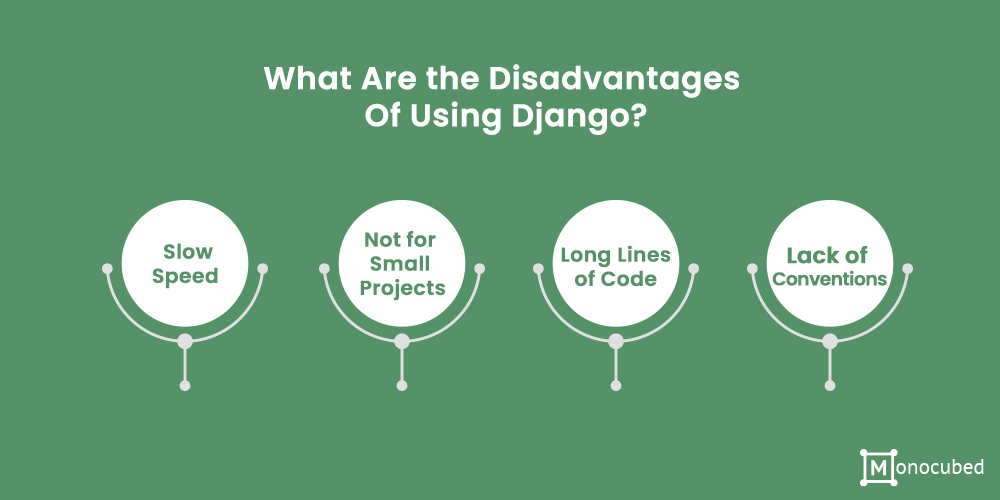
Although a Django application for your organization comes equipped with several advantages, there are also some limitations to what it can do. Although most issues can be resolved with some careful coding, it is important to consider these drawbacks.
Web app development using the Django framework can lead to the following issues –
- Slow
Although Django is a very productive framework, it can be quite slow due to its full-stack nature and dynamically typed paradigm. In addition, Python in itself is a very slow programming language.
Therefore Django is much slower compared to other backend frameworks. In fact, according to the TechEmpower Web Framework Benchmarks Project of 2021, Django ranks 359 in a performance comparison test of 396 frameworks.
Thus it is very important to design the application architecture correctly or you will face some serious issues with speed.
- Not for small-scale
While Django works perfectly for large-scale projects, for smaller applications, the framework can become a huge problem.
With the “batteries included” ideology, the developers are forced to deal with advanced features they don’t require. This makes the framework too monolithic for a small-scale project.
Additionally, it works on a lot of unique concepts compared to other frameworks, with each task having a “Django way” of doing things. So new developers will have to learn many concepts from scratch to write a simple program.
It is a high memory-consuming, server-processing framework that will slow down your speed and cause performance issues in your small-scale websites and web apps.
Thus, we would not recommend Django for smaller websites and projects. You can use alternative Python frameworks if you don’t require database maintenance functionality or a server configuration tool. - Lot of Code
Django calls for a lot of coding, which takes server processing time and bandwidth while developing. The framework has a very small amount of dependencies and is generally considered as a single package.
The lower dependencies require defining each task and configuration explicitly. Django projects, thus, require thousands of unnecessary code lines. A project that would take around 200-300 lines in another framework would take 400-500 lines in Django as you have to explicitly define everything.
This makes it a tedious and time-consuming process, especially for simple websites and apps.
- No Conventions
Everything has to be explicitly defined by developers in Django. There is no standardization or a default configuration available. Meaning, there is no set of principles for developers to follow This lack of convention results in a lot of extra time spent in developing the source code.
As discussed, Django is a powerful framework that can increase the productivity of your development team. While there are some limitations and drawbacks too, the framework is packed with splendid features.
There are many advantages that make it the perfect choice for streamlining your web app development process. The Django community is also quite active and helpful and will solve any problems you might face.
Django will serve you exceptionally well if your project involves heavy datasets, high user traffic, and out-of-the-box security features.
Frequently Asked Questions
What are web frameworks?
A web development framework is a tool designed to support the development of web applications including web services, web resources, and web APIs. Some popular web app frameworks are Ruby on Rails, AngularJS, Node.js, Laravel, Sinatra, Flask and Django.
What is Django used for?
Django is one of the most popular Python web frameworks that encourages rapid development of secure and maintainable websites. It provides a plethora of features to add standard functionalities to any kind of web application. It is easy to maintain, debug, and keep up-to-date with new releases and thoroughly detailed documentation.
Is Django good for web development?
Google, YouTube, NASA, Instagram are some of the top companies around the world that use Django for web development. This is largely owed to its robust and pragmatic design with robust features such as ORM, Django templating language, scalability, flexibility, Django admin panel and the simplicity of Python
Conclusion
Django Python framework is an ideal choice for the development of large-scale web applications. Your company should utilize the powerful features of this Python framework to digitize and market your products.
Want to add a highly effective Django web app for your product?
Monocubed is a professional Django web development company with experience in converting business plans into high-performing customized web solutions. You can reach out to us anytime to get assistance with your Django product.
If you liked reading this blog, check out some of our top blogs on web development.
 By Jeel Patel
By Jeel Patel
